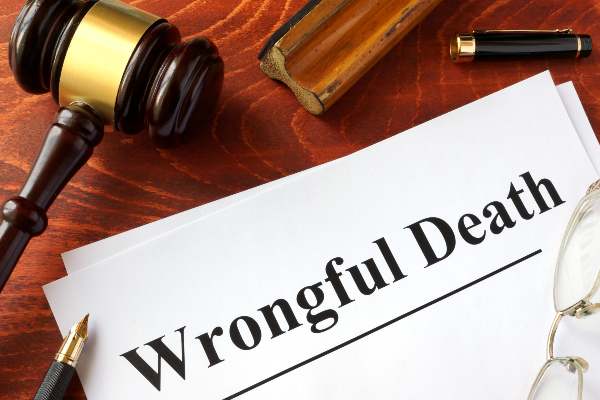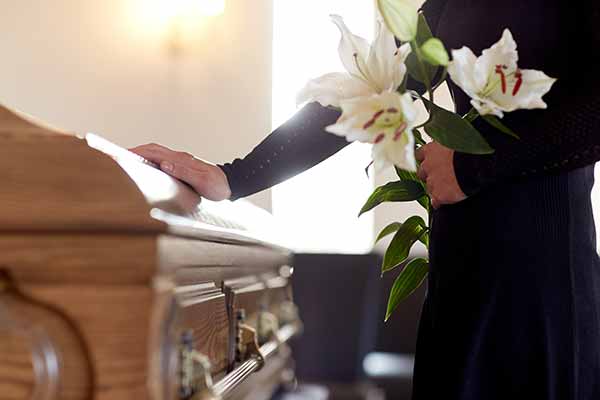The death of a loved one is a terrible experience which no one deserves. It gets worse if the death could have been avoided but for simple negligence. Florida experiences an awful lot of wrongful deaths. The good news is that you can file a claim for damages if you lose your loved one wrongfully. You can contact the wrongful death lawyers at VG Law to start the process.

Every American state has its laws defining wrongful deaths. According to Florida Statutes section 768.19, wrongful death results from the wrongful act, negligence, default, or breach of contract or warranty of another person. Furthermore, the event would have entitled the injured party to file a personal injury claim if they hadn't died.
You can file a wrongful death action against the party who caused the injury that led to your relative's death. This is a civil lawsuit to be filed in civil court.
A wrongful death claim aims to grant the deceased's estate financial compensation for their losses. In Florida, the aim isn't to punish the responsible parties. In this manner, wrongful death claims are different from criminal trials.
There are two primary ways a wrongful death action can begin. For instance, it could start as a personal injury that leads to the injured party's death. It could also be an instant death caused by another person's actions, such as in a fatal accident.
Either way, to establish a wrongful death claim, you must prove the following facts:
Proving these elements in court or to an insurance company can be challenging. Therefore, it would be best to hire an excellent wrongful death attorney. A lawyer can give you legal advice and represent you at trial or settlement negotiations.
In Florida, some prevalent causes of wrongful deaths include:
It's essential to understand the different types of wrongful death claims. These are everyday occurrences that can result in death. They include:
Clearly, in Florida, an auto accident is the most likely cause of wrongful death. Essentially, any harm that can hurt and kill a person may result in wrongful death. If you lost a loved one due to an auto accident, contact a car accident lawyer at VG Law to see if we can help.
There are many legal remedies that the estate of the deceased person may recover against the fault party. The court may award specific damages to the different survivors of the deceased person. Survivors include the decedent's spouse, children, and parents. This list can also include any blood relatives wholly or partly dependent on the decedent for support or services.
Below, we examine the damages available for different classes of wrongful death beneficiaries.
Every survivor may recover damages for the lost support and services from the date of the deceased's injury until their death. This award will also include interest and future loss of services. Furthermore, the court may also award medical or funeral expenses to a survivor who covered them.
The deceased person's husband or wife may get fair compensation for their loss of companionship and protection. The law refers to this as loss of consortium. A spouse can also claim for mental anguish, pain, and suffering.
A minor child and other adult children where there is no surviving spouse may recover the following:
Parents of minors in Florida can recover compensation for mental anguish and the pain, and suffering caused by the loss. A minor child in Florida is anyone under the age of 25 years, irrespective of the age of majority. The parents of an adult child can also recover if no other person survived the child; that is, the deceased has no child or spouse.
The deceased's personal representative may also recover the following for the deceased's estate:
Funeral and medical damages must have been charged against the decedent's estate. If not, they must have been paid by or on behalf of the decedent. This condition would exclude the amounts a survivor may have paid. Other recoverable amounts by the personal attorney include:

Florida law requires that the complaint identify all the parties that'll benefit from the wrongful death damages. The complaint must also allege the relationships of the potential beneficiaries with the wrongful death victim.
If your loved one lost their life in Florida because of another's actions, you might be eligible to file a wrongful death lawsuit. A family member can sue for wrongful death. However, not all family members can sue. Only a restricted class of relatives can initiate a wrongful death lawsuit. Furthermore, the right to sue comes in the order of priority.
The Florida Wrongful Death Act lists the people who can file a wrongful death claim. They include:
These are the primary beneficiaries in a Florida wrongful death claim. They rank higher than every other family member. Other family members can sue if they relied wholly or partly on the deceased for support. This would also include adopted siblings of the deceased. Essentially, asides from the deceased's primary family, the other family members must suffer significant financial loss from the death to be eligible to sue.
Furthermore, a child born to unmarried parents can sue if the mother is killed wrongfully. If the father is deceased and the child was dependent on him for support during his life, the child can also file a wrongful death suit.
The decedent's personal representative can also file a claim. They can bring the suit on behalf of the deceased's estate and any survivors. The personal representative is often stated in the decedent's will. Oftentimes, the personal representative is also a family member in the lists above. However, if a personal representative isn't named, the court can appoint one.
Any person who doesn't fall into any of the classes mentioned above cannot maintain a wrongful death lawsuit. The court will dismiss such a claim. It would help to get a lawyer's opinion on which of your family members is eligible to file a wrongful death claim. This would prevent such relatives from wasting resources to file a claim for which they aren't eligible.
In Florida, you can file a wrongful death lawsuit in court or accept a settlement from the responsible party and their insurer. You can still accept a settlement at any time during litigation. Which option you choose ought to be after considering several factors. It would help if you didn't make this decision without a wrongful death attorney's input. A lawyer would have had many such cases and can give you the best advice considering your case's facts. Also, consider the views of everyone that the decision will affect.
Whatever your decision, you must bear the Florida Statute of Limitations in mind. Some relevant factors to consider before choosing a settlement or trial include:
Furthermore, even if you take a settlement, Florida Statutes section 768.25 provides court approval before a settlement becomes effective. This will apply where a survivor objects to the amount or apportionment between beneficiaries. You will also require court approval if the settlement affects a minor or an incompetent survivor.
You don't have all the time in the world to file a wrongful death lawsuit in Florida. All American states have legislation stating the timeframe within which you must file different civil lawsuits. This piece of legislation is called a Statute of Limitations. The relevant Florida law is Florida Statutes chapter 95.11 (4) (d). It applies to actions other than recovery for real property.
Florida's Period of Limitations for wrongful deaths is two years. This means that you must initiate your lawsuit within two years from the time of death. Your time starts to count from the day the deceased person dies. It doesn't mean that you must complete the legal proceedings before two years expires. It's sufficient that you have filed the claim in court.
If you don't file your claim within this period, the law may bar your case forever. If you didn't study the law, you might be unaware of this time limitation. That's why it's essential to hire the best wrongful death attorney. The statute of limitations applies whether the death was caused by an auto accident or any other type of accident.
The rationale behind the Period of Limitations is to get plaintiffs to file their claims early. There are many disadvantages to bringing a wrongful death lawsuit late, including:

Even if your claim isn't barred, these issues can negatively impact your case. The deadline for bringing your wrongful death claim may be tolled or postponed in a few instances. Such cases include:
Losing a relative can be a difficult time for every member family. Dealing with emotional pain must be paramount. However, it would be best not to bear the medical expenses and other regular expenses. Such death responsibilities can result in financial hardship.
Proceeding against the fault party in Florida can be challenging if you do it alone. So, it would be best to have an experienced lawyer represent you. At VG Law, we're the best wrongful death attorneys in Florida. With our combined expertise, we can prove the fault of the negligent party. Call us today to talk about your case.